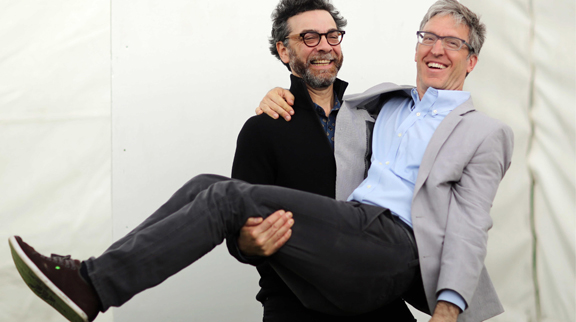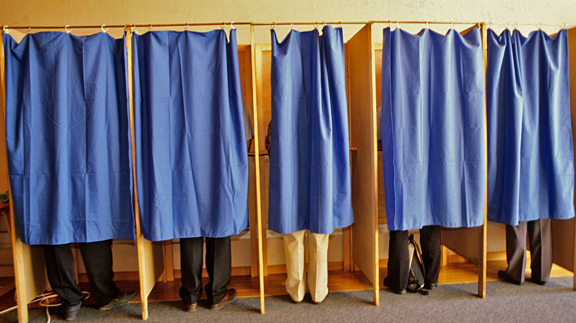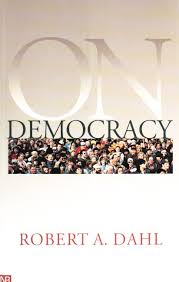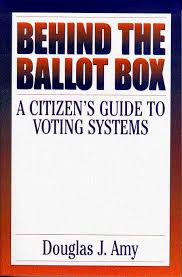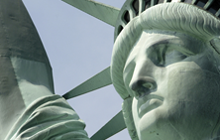First, examine this article on the rationality of voting from economists Stephen Dubner and Steven Levitt, the authors of the Freakonomics series. They lay out in a clear and coherent way some of the issues at stake that are raised when we ask this question as American citizens.
By Stephen J. Dubner and Steven D. Levitt (Source) | Within the economics departments at certain universities, there is a famous but probably apocryphal story about two world-class economists who run into each other at the voting booth.
“What are you doing here?” one asks.
“My wife made me come,” the other says.
The first economist gives a confirming nod. “The same.”
After a mutually sheepish moment, one of them hatches a plan: “If you promise never to tell anyone you saw me here, I’ll never tell anyone I saw you.” They shake hands, finish their polling business and scurry off.
Why would an economist be embarrassed to be seen at the voting booth? Because voting exacts a cost — in time, effort, lost productivity — with no discernible payoff except perhaps some vague sense of having done your “civic duty.” As the economist Patricia Funk wrote in a recent paper, “A rational individual should abstain from voting.”
The odds that your vote will actually affect the outcome of a given election are very, very, very slim. This was documented by the economists Casey Mulligan and Charles Hunter, who analyzed more than 56,000 Congressional and state-legislative elections since 1898. For all the attention paid in the media to close elections, it turns out that they are exceedingly rare. The median margin of victory in the Congressional elections was 22 percent; in the state-legislature elections, it was 25 percent. Even in the closest elections, it is almost never the case that a single vote is pivotal. Of the more than 40,000 elections for state legislator that Mulligan and Hunter analyzed, comprising nearly 1 billion votes, only 7 elections were decided by a single vote, with 2 others tied. Of the more than 16,000 Congressional elections, in which many more people vote, only one election in the past 100 years — a 1910 race in Buffalo — was decided by a single vote.
But there is a more important point: the closer an election is, the more likely that its outcome will be taken out of the voters’ hands — most vividly exemplified, of course, by the 2000 presidential race. It is true that the outcome of that election came down to a handful of voters; but their names were Kennedy, O’Connor, Rehnquist, Scalia and Thomas. And it was only the votes they cast while wearing their robes that mattered, not the ones they may have cast in their home precincts.
Still, people do continue to vote, in the millions. Why? Here are three possibilities:
- Perhaps we are just not very bright and therefore wrongly believe that our votes will affect the outcome.
- Perhaps we vote in the same spirit in which we buy lottery tickets. After all, your chances of winning a lottery and of affecting an election are pretty similar. From a financial perspective, playing the lottery is a bad investment. But it’s fun and relatively cheap: for the price of a ticket, you buy the right to fantasize how you’d spend the winnings — much as you get to fantasize that your vote will have some impact on policy.
- Perhaps we have been socialized into the voting-as-civic-duty idea, believing that it’s a good thing for society if people vote, even if it’s not particularly good for the individual. And thus we feel guilty for not voting.
But wait a minute, you say. If everyone thought about voting the way economists do, we might have no elections at all. No voter goes to the polls actually believing that her single vote will affect the outcome, does she? And isn’t it cruel to even suggest that her vote is not worth casting?
This is indeed a slippery slope — the seemingly meaningless behavior of an individual, which, in aggregate, becomes quite meaningful. Here’s a similar example in reverse. Imagine that you and your 8-year-old daughter are taking a walk through a botanical garden when she suddenly pulls a bright blossom off a tree.
“You shouldn’t do that,” you find yourself saying.
“Why not?” she asks.
“Well,” you reason, “because if everyone picked one, there wouldn’t be any flowers left at all.”
“Yeah, but everybody isn’t picking them,” she says with a look. “Only me.”
In the old days, there were more pragmatic incentives to vote. Political parties regularly paid voters $5 or $10 to cast the proper ballot; sometimes payment came in the form of a keg of whiskey, a barrel of flour or, in the case of an 1890 New Hampshire Congressional race, a live pig.
Now as then, many people worry about low voter turnout — only slightly more than half of eligible voters participated in the last presidential election — but it might be more worthwhile to stand this problem on its head and instead ask a different question: considering that an individual’s vote almost never matters, why do so many people bother to vote at all?



